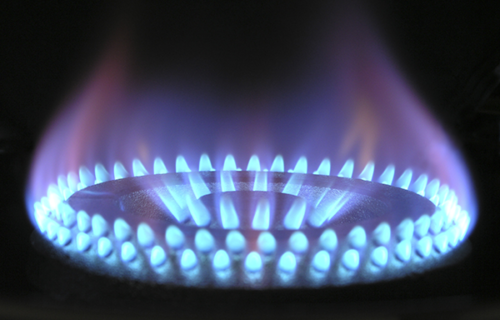In Pilsen, the current prices of heat, water, rents, public transport subscriptions, waste collection and property tax will not increase. The city thus wants to relieve citizens so that they can prepare for significant increases in the price of electricity and gas, which are commodities that they cannot influence, announced Economic deputy mayor David Šlouf (ODS) at a press conference today.
Plzeňská teplárenská (PT), which is 65 percent owned by the city and the rest by billionaire Daniel Křetínský’s EPH group, decided today to maintain the current prices. In 2023, prices will not increase for 163,000 of the 180,000 inhabitants, nor for institutions such as schools, nor for companies that are connected to a central heating source. The price of heat will remain below the threshold of CZK 600/GJ, making it the cheapest in the Czech Republic, said CEO Václav Pašek.
Mayor Pavel Šindelář (ODS) highly appreciated that the city managed to find an agreement with EPH. “In these difficult times, it is necessary for the city to stick together with its citizens and not profit from them,” he said. According to him, the company can afford this step thanks to its long-term very good management and, in particular, the fact that it is not dependent on natural gas supplies from Russia. Almost half of it burns wood chips and municipal waste, which is supplemented by brown coal. The price of these fuels increases only minimally according to the formulas agreed with the suppliers.
Plzeň will not even increase the price of water and sewage for the year 2023, said Šindelář, who is the chairman of the board of the municipal company Vodárna Plzeň. The city’s budget proposal for 2023, which is being prepared, already anticipates zero increases in the price of heat, water and sewage. “Pilsen is an economically strong and healthy city in excellent condition, which is why it must help its citizens overcome the crisis year 2023 in this difficult time,” Šlouf said. That is why rents of city apartments and non-residential spaces, public transport subscriptions and fees for waste collection and disposal are also stagnating. The city budget, unlike households, can handle this burden without limiting investments or property sales, he added. Šlouf estimated that price stagnation will cause the city’s income to fall by 130 to 150 million CZK in 2023.
The city and its companies mostly planned to raise prices for next year by at least inflation, and all costs will increase mainly due to the increase in electricity and gas prices. “We have been negotiating in recent weeks. The more energy prices escalate, we have intensified the negotiations in order to reassure our citizens a little in these volatile times. So that they know before the heating season that the services provided by the city will remain at the current price in 2023,” he added.
The city will compensate for this by reducing the rent for the infrastructure to 70 million crowns, i.e. by less than half. “In addition to the increase in energy prices, the fees for the consumption of raw water, chemicals and construction work will increase. However, we want to continue to invest in infrastructure, just like this year, when it will be 260 million and about 100 million in operating assets,” said the economic director Štěpánka Růžičková. According to current signals, water companies in the Czech Republic will raise their prices by ten to 15 percent from January.
The heating plant, which will lose about 50 million crowns in revenue, will slightly reduce the dividend it pays to the city every year due to the increase in input prices. The specific amount will not be clear until the end of the year. But the company is doing even better this year than last year thanks to the high prices of the electricity it sells and produces. “So we want to share this profit with the city,” Pašek said. Thanks to the constant price of CZK 598/GJ including VAT, the company can acquire new customers. Pašek estimated that the increase in the price of heat for sources in the Czech Republic that run on gas will be up to five times, for those independent of gas such as PT, it will not exceed ten percent. The waste company Čistá Plzeň, with an annual turnover of 200 million CZK, will see costs increase by about five million crowns, which will not be reflected in the prices.
Pilsen estimates that the price of electricity for the city and its organizations, including schools, will increase roughly threefold next year. He is preparing financial reserves for the new management of the town hall, which will emerge from the September elections. In the budgets for the following years, CZK 50 million is always blocked for energy price increases, and on September 12, the council will approve another CZK 235 million from the surplus of the first half of the year. Šlouf hopes that the European crisis on the electricity and gas market will calm down soon. He believes in the positive results of the extraordinary meeting of the European Energy Council on September 9 in Brussels.
Source: CTK
